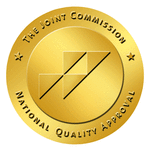It’s not unusual for an alcoholic or addict to wonder, in the midst of yet another self-imposed crisis: ”
What’s wrong with me?”
“Why does this keep happening to me?”
“Why do I keep doing this?”
The answers are simple, but also astonishingly elusive. It requires a mode of thinking that is foreign to the alcoholic mind, which is so preoccupied with itself that it naturally rebels against the idea of surrender, of letting go of old ideas, and of considering that there is an entirely new mode of living, thinking, and perceiving.
A Spiritual Connection Fills Us Up
This new mode involves developing a spiritual connection, and with the right guidance, along with the willingness—usually born of desperation—this is an achievable and highly rewarding goal. Here are some of the benefits of this new personal enterprise:
- A sincere and sustained effort to develop a spiritual connection is a time-tested and reliable way to get free from addiction. The inner transformation that is brought about redirects the engine of desire away from alcohol and drugs and toward life-affirming pursuits.
- A new sense of community is available. Once we see that our isolation made us drink and our drinking isolated us, and we find ourselves in the company of others who have felt the same way, we find a connectedness not only in our common problem but also in our shared solution. This new connectedness opens us to the development of new friendships upon new and more gratifying terms than we knew in our old lives.
- A spiritual connection opens us to our intuition, a faculty that is a powerful ally in decision-making. The cerebral approach to problem solving has its limitations, especially when our self-centered fears are the chief drivers of our thought processes. Intuition, spiritual principles, and the willingness to listen to people perhaps wiser and with more experience will virtually guarantee better outcomes and less stress than our old headstrong reactive ways.
- An ability to go with the flow is an attractive part of the spiritual-connection package. When we learn acceptance on a deep level, including past harm, present challenges, and future possibilities, we find that we can experience serenity even during troubled times. Stress, anxiety, and depression are lessened when we allow people and circumstances to simply be as they are. This doesn’t mean that we become passive—doormats to be dominated by those around us, and blowing in whatever wind comes up—but rather that we (going back to intuition and principles) respond appropriately and accept the results of our best efforts. When we choose this non-adversarial stance toward things, we find that we can influence events much more positively than when we tried to control them.
- A host of other benefits arise out of the pursuit of a spiritual connection. We become freed up to pursue our creativity, health, and relationships on a new footing. We are often surprised as new insights and even epiphanies pop up, seemingly out of nowhere.
Connection Provides Answers To Our Questions
One of the most transformative aspects of a spiritual connection is that it leads us to opportunities to be useful. Nobody who is living a useful, sober life, immersed in a new sense of community, and living through intuition and principles is asking herself What’s wrong with me? Why does this keep happening to me? Why do I keep doing this? A spiritual connection answers and moves us beyond these questions.
By: Jake Sandino




 RSS Feed
RSS Feed
